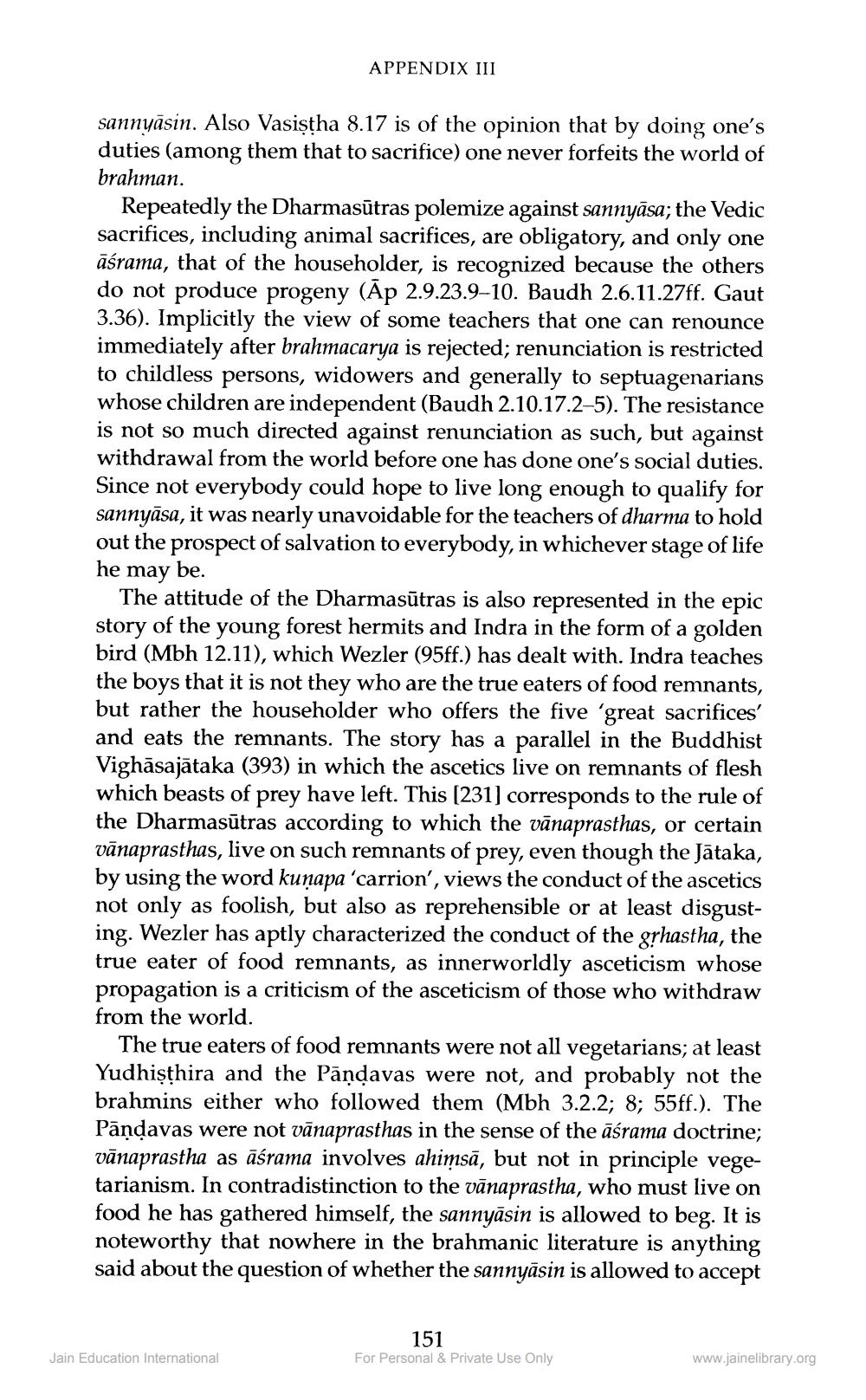________________
APPENDIX III
sannyāsin. Also Vasiştha 8.17 is of the opinion that by doing one's duties (among them that to sacrifice) one never forfeits the world of brahman.
Repeatedly the Dharmasūtras polemize against sannyāsa; the Vedic sacrifices, including animal sacrifices, are obligatory, and only one āśrama, that of the householder, is recognized because the others do not produce progeny (Āp 2.9.23.9–10. Baudh 2.6.11.27ff. Gaut 3.36). Implicitly the view of some teachers that one can renounce immediately after brahmacarya is rejected; renunciation is restricted to childless persons, widowers and generally to septuagenarians whose children are independent (Baudh 2.10.17.2–5). The resistance is not so much directed against renunciation as such, but against withdrawal from the world before one has done one's social duties. Since not everybody could hope to live long enough to qualify for sannyāsa, it was nearly unavoidable for the teachers of dharma to hold out the prospect of salvation to everybody, in whichever stage of life he may be.
The attitude of the Dharmasūtras is also represented in the epic story of the young forest hermits and Indra in the form of a golden bird (Mbh 12.11), which Wezler (95ff.) has dealt with. Indra teaches the boys that it is not they who are the true eaters of food remnants, but rather the householder who offers the five 'great sacrifices' and eats the remnants. The story has a parallel in the Buddhist Vighāsajātaka (393) in which the ascetics live on remnants of flesh which beasts of prey have left. This (231] corresponds to the rule of the Dharmasūtras according to which the vānaprasthas, or certain vānaprasthas, live on such remnants of prey, even though the Jātaka, by using the word kuņapa 'carrion', views the conduct of the ascetics not only as foolish, but also as reprehensible or at least disgusting. Wezler has aptly characterized the conduct of the grhastha, the true eater of food remnants, as innerworldly asceticism whose propagation is a criticism of the asceticism of those who withdraw from the world.
The true eaters of food remnants were not all vegetarians; at least Yudhisthira and the Pāņdavas were not, and probably not the brahmins either who followed them (Mbh 3.2.2; 8; 55ff.). The Pāņdavas were not vānaprasthas in the sense of the āśrama doctrine; vānaprastha as āśrama involves ahimsā, but not in principle vegetarianism. In contradistinction to the vānaprastha, who must live on food he has gathered himself, the sannyāsin is allowed to beg. It is noteworthy that nowhere in the brahmanic literature is anything said about the question of whether the sannyāsin is allowed to accept
151 For Personal & Private Use Only
Jain Education International
www.jainelibrary.org




